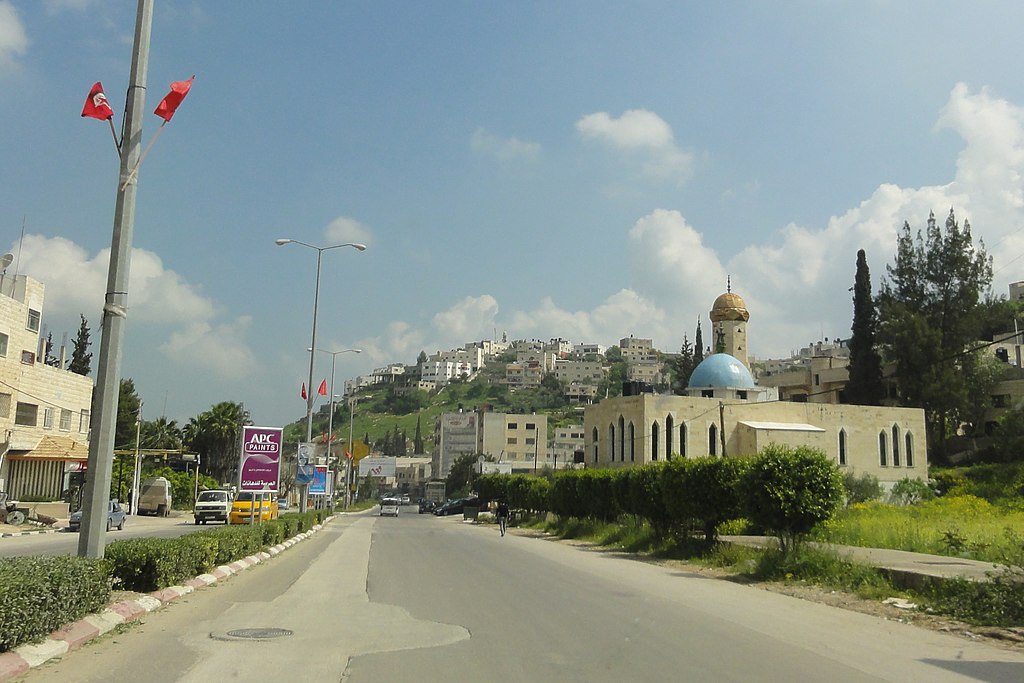Because of Israel, Palestinians are happy. Especially when they aren’t.

by Lev Tsitrin
This, it seems to me, is the upshot of the New York Times’ feature article titled “‘Don’t Be Sad, Father’: Farewells Reflect Deadly Period in West Bank” that lends empathic ear to the grievances of terrorism-embracing youths hailing from the PA-controlled territories.
The article comes in the immediate aftermath of Israeli operation in Jenin that uncovered arms labs, stores of explosives (including a storehouse under a mosque), and killed twelve armed terrorists. Now, Jenin — just like Gaza — is not “occupied.” Since the signing of the Oslo accords, it is under the control of the Palestinian Authority and is, therefore, self-ruled. Yet, exactly like in Gaza, self-rule is no reason to live happily — or at least, to live normally. This, apparently, is just too much to ask the Palestinians for: without “struggle,” life is dull. School is boring, prayers at the mosque, monotonous, socializing with friends, dull. The youths of Jenin need excitement — and where do they find it?
Well, the answer is in Palestinian air. “Palestinian society has long lionized “martyrs” — anyone killed by Israeli forces — with many of their images displayed on walls and banners in Palestinian cities and, more recently, on social media platforms like Instagram,” the New York Times informs us. Dead “martyrs” are celebrities — so here’s the easy way to fame (and, given the PA’s “pay for slay” policy, to fortune, too — at least for the relatives): get a gun, cross into Israel, and kill as many Israelis as you can. And so they do. “So far this year, at least 29 Israelis have been killed by Palestinian assailants, one of the highest tolls since 2008,” according to the article. No wonder, given that “many young Palestinians feel added pressure that they themselves must become involved in the struggle against Israel and act.”
“Struggle against Israel” is the key word here. Mind you, theirs is not the struggle for independence or self-rule — Palestinians already have it: some 95% of them live either under the control of the PA, or of Hamas. But self-rule alone is not enough. Why be happy when you can be aggrieved? Hence, imitating the grown-up terrorists who “left behind final testaments, sometimes high-quality videos, to take responsibility for attacks in which they expect to lose their lives,” youngsters do the same — and having been backed into the corner by their own words, and feeling that to backtrack would be a shameful betrayal, they engage in terrorism — and once they get killed, their tearful “testaments” are read aloud to make their friends follow suit, so as not to lose face: “The farewell testaments reflect a prevailing sense among many young men that death is heroic, meaningful and inevitable.”
And all this just out of hate for Israel — and nothing else. This hate is highly useful, and is therefore nurtured by the PA and the Hamas who cannot suggest any meaningful life (their leadership of course does live well, having pocketed vast quantities of aid — and occasionally by using a business opportunity, like when “Thousands of tons of cement sold to Palestinian businessmen at below-market prices by Egypt to help rebuild communities devastated by years of war with Israel have been resold at huge profits to the Israelis, for use in building Israel’s controversial separation barrier and settlements in the occupied territories”) — but this path is not for everyone, of course: the rank-and-file must diligently play up the Palestinian suffering under foreign occupation (inviting it in via terrorism), while the higher-ups luxuriate in their swell villas.
Bottom line — fanning hate of Israel is both good politics, and good business. It is good politics because it ensures public tolerance of the thoroughly corrupt, thieving Palestinian rulers who have nothing to offer their people. The public loves (or at least tolerates) them because, while they may be thieves (and who isn’t, given the opportunity?), they are patriots — which is what counts! And it is good business too, because it ensures that the conflict does not end, and the international aid to the poor, unfortunate Palestinians keeps rolling in, to be siphoned off to fill their rulers’ pockets. What’s to complain about? The public is busy hating Israel, the world is busy bankrolling Palestinian establishment. Everyone is happy!
Hate pays off. That’s the real lesson of the New York Times‘ piece. The paper should have used that moral for the story’s title, I think. It’s much more reflective of what’s going on than the foolishly tearful ‘Don’t Be Sad, Father’: